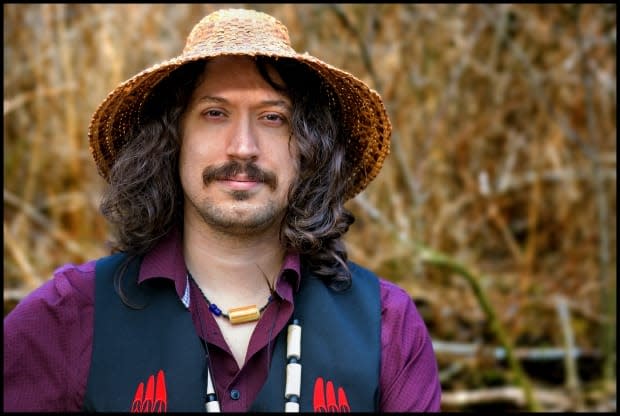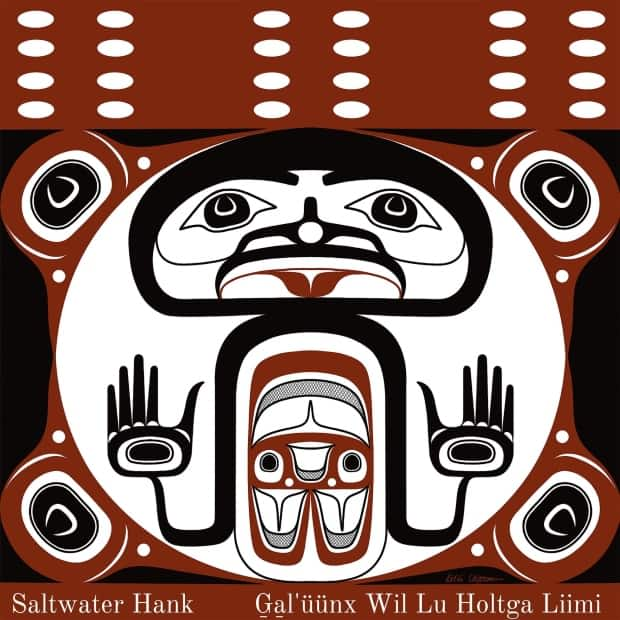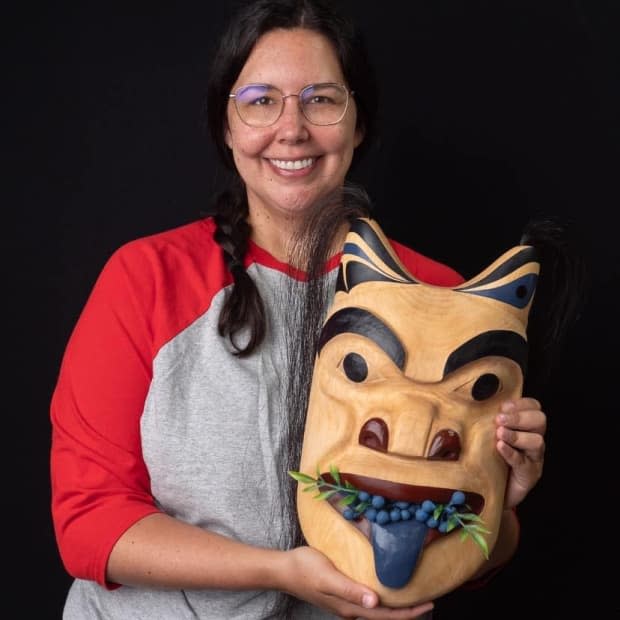Ts'msyen musician set to release album in Sm'algya̱x after years of studying endangered language

Jeremy Pahl recommitted to learning his ancestral language after moving home to Kxeen, also known as Prince Rupert, B.C. Five years later, he says he catches himself thinking, and dreaming, in Sm'algya̱x.
The Ts'msyen musician says it's become his first language when he's writing. He's now set to release his first album recorded entirely in Sm'algya̱x this summer, with the first single dropping on May 31.
Pahl, 34, has been telling stories through song since he was a teenager, when he first sung in Sm'algya̱x in the Prince George-based death metal band Gyibaaw. He's since switched genre to folk and country, and most recently has been releasing English-language music under the name Saltwater Hank.
He calls this album a "full-circle moment," and a significant milestone for him as a musician and a Sm'algya̱x language-learner.
Pahl, whose given Ts'msyen name is Wil Uks Batsga G̱a̱laaw, says the album is a form of resistance "to the further erasure of our people, our culture and our language."
For decades, official government policies attempted to stamp out Indigenous language, stories and cultural practices through programs like federally funded residential and day schools, and policies like the potlatch ban. These were often violently enacted, as outlined by the Truth and Reconciliation Commission.
According to the First Peoples' Cultural Council (FPCC), about 17,000 people in B.C. are learning their First Nations language, an increase of about 3,000 since 2018.
Pahl says there are currently just 65 speakers considered to be fluent in Sm'algya̱x. Twenty years ago, he says the community estimated there were closer to 400 fluent speakers, mostly of the older generation.

One of Pahl's language mentors, Theresa Lowther, 72, says after 30 years of working to stem the tide of language loss, his new album is cause for hope.
"Years ago, we were really afraid our language was going to die," said Lowther, a fluent Sm'algya̱x speaker whose Ts'msyen name is Huhu uŁk.
"… I can see the light at the end of the tunnel now, and Jeremy, I believe, is a leader in doing that."
Bentwood box full of songs
The intention behind the album can be read in its title, G̱al'üünx wil lu Holtga Liimi, which translates to "bentwood box full of songs."
"A bentwood box was where things were kept safe," from regalia to dried berries and oolichan grease, Pahl says, adding that singing and songs have always been held sacred by Ts'msyen society.
He says it's taken years to get his Sm'algya̱x songs right, ensuring grammatical accuracy and pronunciation.

Adziksm Gyipaayk (Kelli Clifton), 34, is learning Sm'algya̱x alongside Pahl and also the artist behind the album's cover. The bentwood box design features a human figure in the middle, which, she says, represents the songwriter, speaker, or language learner.
As soon as Pahl brought the idea to her, she says she knew this album was significant.
"It was one of those conversations that almost felt electric… and I knew this project as a whole was going to be special," she said.
"It's very emotional because my father, when he was a young child, grew up speaking Sm'algya̱x fluently," she added. "And then he attended Indian Day School," where he was forced to speak English.

Canada Day release
The album will be released in full on July 1, a date Pahl chose intentionally.
While many will be celebrating Canada Day, Pahl says he'll be celebrating the elders and language mentors who helped him make the album, and the deepening ties to his language.
"It's not so much a celebratory day, especially for Indigenous people, whose land has been compromised, whose genocide has occurred," says Pahl, noting that other nations, like the Heiltsuk, are working to reclaim that day for their own celebrations as well.
Lowther says the enthusiasm of the younger generation is helping heal the damage done through colonial practices like residential schools.
"One thing that really makes me happy is the amount of young people… really taking the baton and going forward with it, making a stand and saying we are going to bring [Sm'algya̱x] back."


